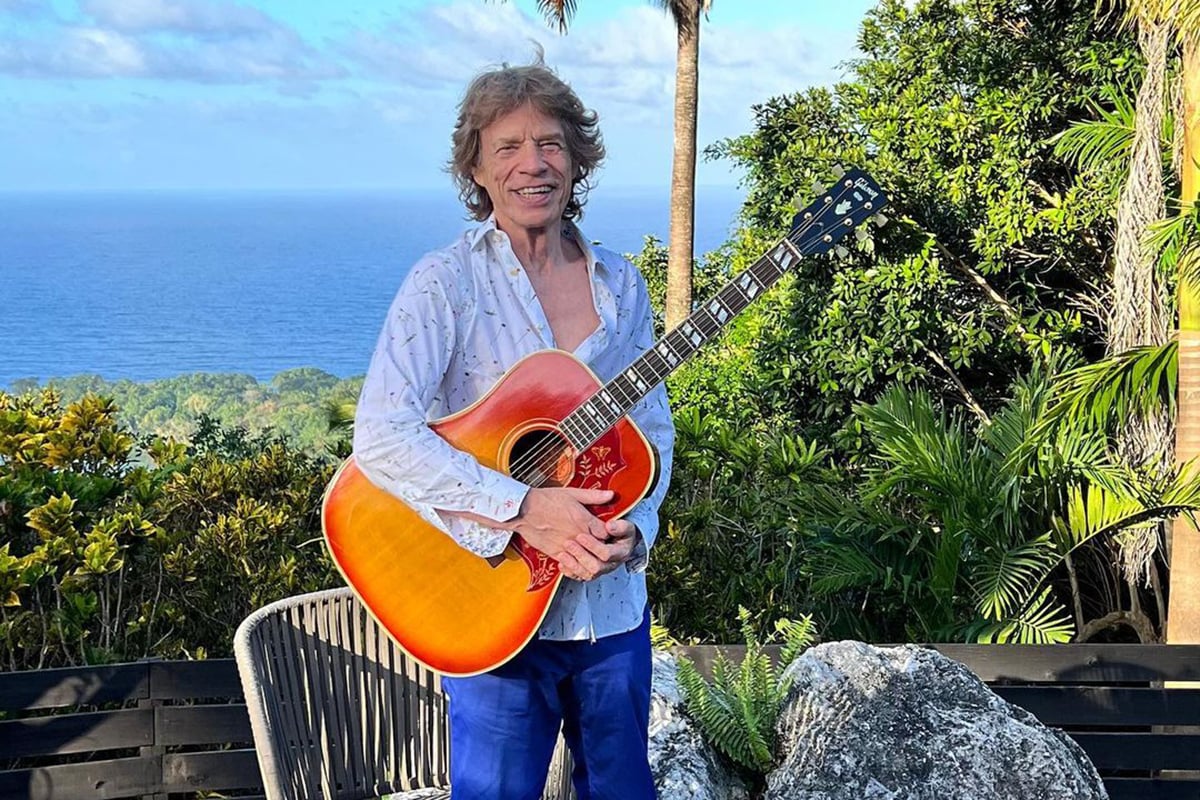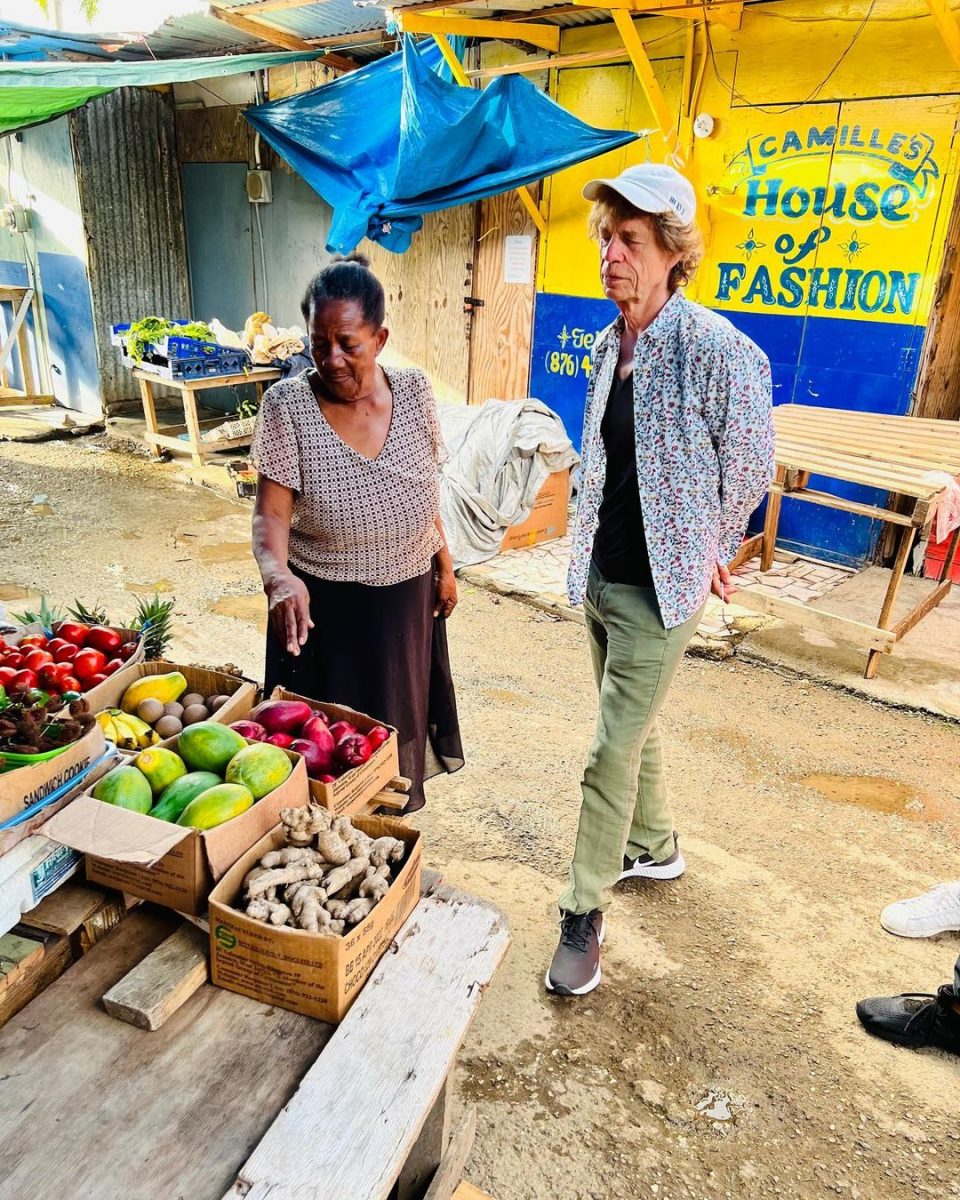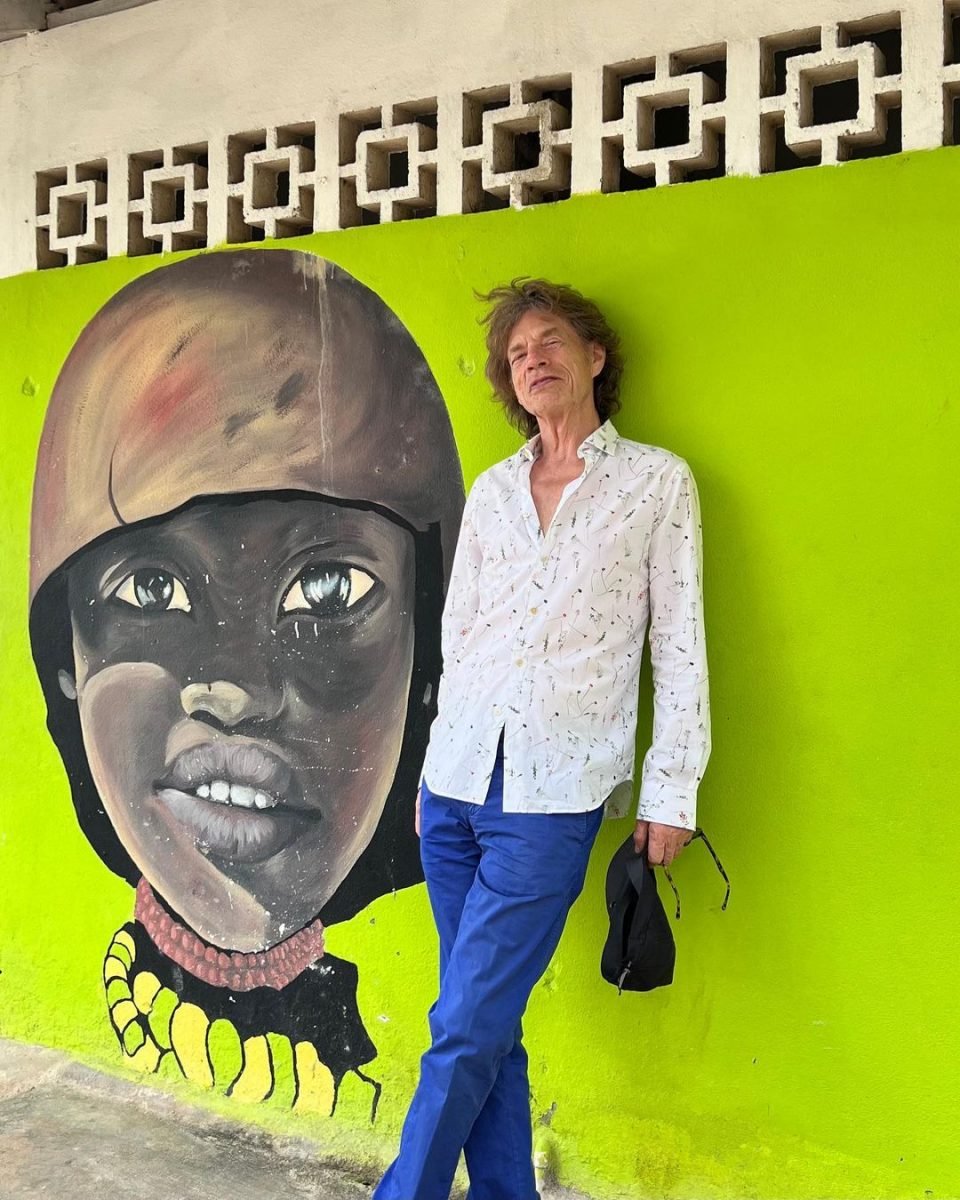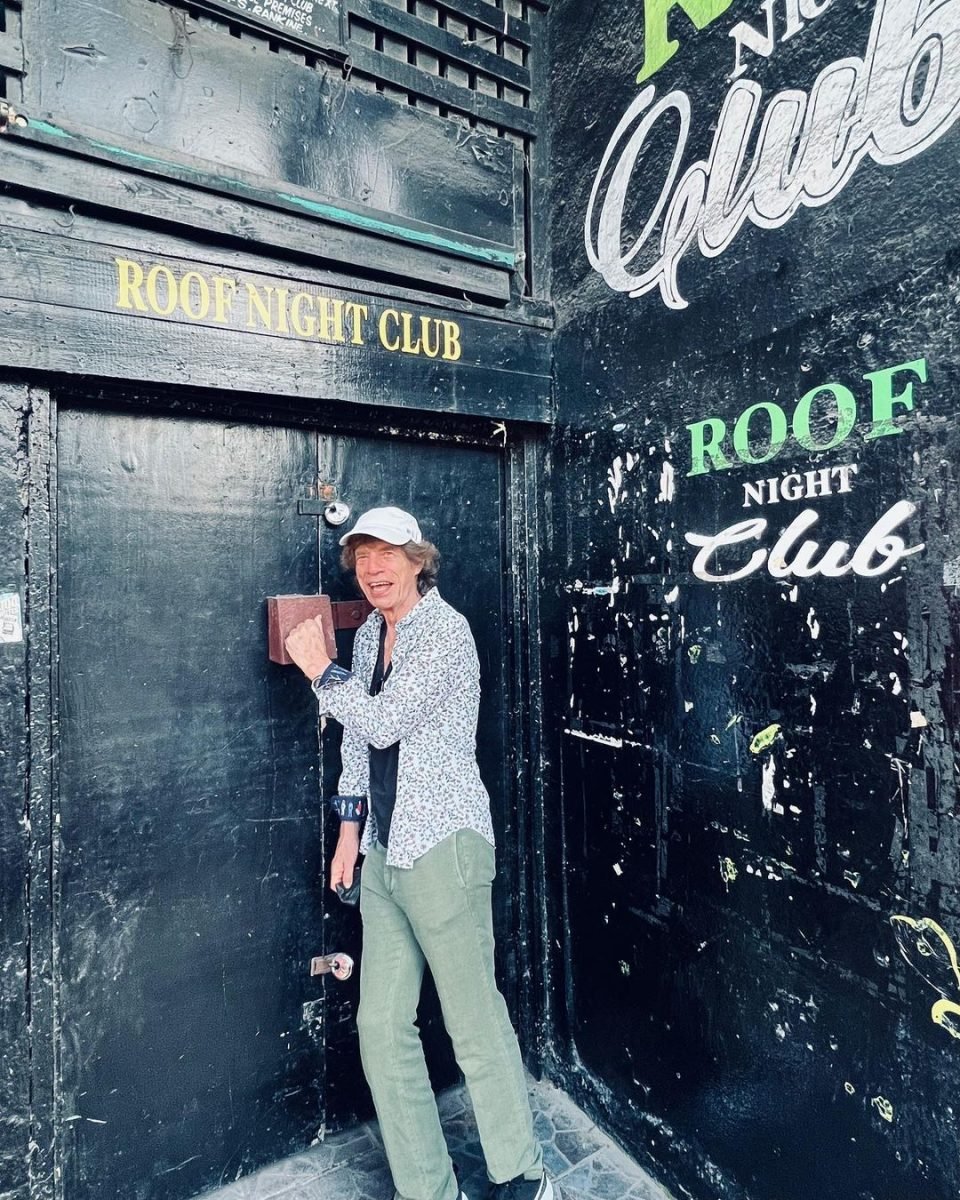The Rolling Stones’ Mick Jagger Enjoys “A Little Downtime” In Jamaica

The Rolling Stones’ Mick Jagger, who was closely associated with Reggae legend Peter Tosh, seems up to some musical works in Port Antonio, the cradle of Jamaica’s tourism and a stomping ground for music and Hollywood’s rich and famous.
The British rock legend gave his fans a peek into his most recent holiday in Portland, on Friday, by posting several snapshots on his Instagram page of himself having fun round-town in the picturesque parish capital.
Sir Mick, 78, showed off pics of himself with his guitar standing somewhere in the mountains, with the Caribbean sea in the distance; another with him at a fruit and vegetable stall listening to a market vendor as well as himself leaning on a neon green mural.
The music legend, unsurprisingly, posted an image of himself at the Roof Nightclub, Portland’s longest-standing night club.
“A little downtime before things get busy!” the lanky musician captioned his post.
Jagger’s visit comes just a year shy of the 50th anniversary of The Rolling Stones’ month-long stay in Jamaica in 1973, where they recorded their Goat Head Soup album at Byron Lee’s Dynamic Sounds Studios in Kingston, during what was the Briton’s second trip to the island.
With the Terra Nova Hotel as their abode, the group deeply immersed themselves in Jamaican culture where they gallivanted in Ocho Rios, had the time of their lives in Port Antonio, and, according to one band member, essentially caused merriment and Jamaican bliss, to take precedence over the album, according to Far Out Magazine.
Jagger, who formed one of the five members of the Rolling Stones, sparked a connection to Reggae when the band’s record label signed Peter Tosh in 1978, and released his album Bush Doctor.
Tosh’s album also featured Mick who collaborated with him on the lead single Don’t Look Back, which was a cover of The Temptations’ original song. That album also featured classics such as Pick Myself Up, I’m the Toughest, Dem Ha Fe Get a Beatin and Creation.
Peter Tosh was the only Reggae artist signed to Rolling Stones’ label, from 1978-1981. He also served as the opening act for their 1978 US tour. The Johnny B Goode singer is also featured in the opening scene of the band’s music video for the song Waiting On A Friend.
The Rolling Stones also covered Jamaica’s 1971 Festival Song winner Cherry Oh Baby by Eric Donaldson for their 1976 album Black And Blue.
Jagger was also in attendance in 1978 at the One Love peace concert at the National Stadium in Kingston.
Peter Tosh recorded a total of three albums on Rolling Stones small record label, but their relationship reportedly ended on a sour note, as the Reggae icon grew bitter after his second and third albums did not do great numbers, which he attributed to a lack of promotion by the label.
The relationship between the parties ended after Tosh’s 1981 album Wanted Dread & Alive.
According to a 1973 Rolling Stone Magazine article, about The Rolling Stones’ Goat Head Soup album, after completing the most intensive studio activity of their ten-year recording career, the schedule for which they had to compress in order to finish up before Christmas, by “working sundown to sunup seven days a week during four weeks in November and December, “the Stones cut more than a dozen basic tracks at Dynamic Sounds Studio”, ahead of their month-long tour of Hawaii, Japan, Hong Kong and Australia.
“Nobody has had any time to go sightseeing or shopping,” their manager Marshall Chess was quoted as saying. “Their only relaxation has been a few late afternoon hours by the pool at the Terra Nova, a palatial hotel that was formerly the family home of Chris Blackwell, founder of England’s Island Records, which brought Kingston Studios their current fame.”
Jagger had also laid out a pro and a con of recording in Jamaica, according to the article.
“Finding something to eat has been a problem. We usually get up too late for lunch and too early for dinner. When we return from the studio it’s too early for breakfast,” he was quoted as saying.
“One of the benefits of recording away from home in an isolated place like Jamaica is there are no distractions. We can work without interruptions and that is what we have been doing,” he added.
Three Jamaican musicians played on the album, which according to Rolling Stones, a Jamaican conga and timbales player and Ian Stewart, long-time friend and road manager, on piano.
Byron Lee had told the magazine at the time that he had completed his new Studio B just in time for The Rolling Stones, and had also sourced specific equipment they requested: “a grand piano and Hammond B3 organ, as well as special microphones and headphones, which Jamaican musicians never use in the studio)–an investment of nearly $100,000”.
Jagger has kept abreast of Jamaican music over the years. On two occasions, a few years ago, he not only named his top 10 Reggae songs, but also stated that Vybz Kartel was his favourite ‘rapper’.
He told Far Out Magazine, at the time that Get Up, Stand Up, No More Trouble and War by Bob Marley were in his top 10.
In addition, Toots and The Maytals’ 54-46, War Ina Babylon by Max Romeo; Marcus Garvey by Burning Spear; and You Don’t Love Me (No, No, No) by Dawn Penn, were among his favourites, in addition to Peter Tosh’s Pick Myself Up Gregory Isaacs’ Cream of the Crop; Brethren And Sistren by The Viceroys), Writing on The Wall by Ronnie Davis and Tenor Saw’s legendary Dancehall hit Ring the Alarm.



